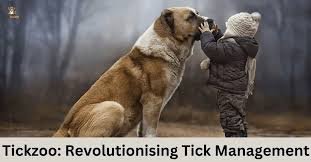Introduction
Ticks, small arachnids found in various environments worldwide, are notorious for their role as vectors of numerous diseases affecting both humans and animals. Effective tick management is crucial in preventing these diseases and ensuring the health of ecosystems. This is where Tickzoo comes into play, offering innovative solutions for tick control and management. In this article, we will explore the significance of tick management, the traditional methods used, the innovative solutions provided by Tickzoo, and the impact of these advancements on public health and agriculture.
Understanding Ticks and Their Impact
What Are Ticks?
Ticks are small, blood-feeding arachnids that belong to the order Ixodida. They are external parasites, primarily of mammals and birds, and occasionally reptiles and amphibians. Ticks go through four life stages: egg, larva, nymph, and adult. At each stage, they require a blood meal to progress to the next.
Diseases Transmitted by Ticks
Ticks are vectors of numerous diseases, including Lyme disease, Rocky Mountain spotted fever, and tick-borne encephalitis. These diseases can have severe consequences for human and animal health. Lyme disease, for instance, can cause chronic symptoms affecting the joints, heart, and nervous system if left untreated.
Economic and Environmental Impact
The economic impact of ticks is significant, particularly in the livestock industry. Tick infestations can lead to decreased productivity, weight loss, and even death in severe cases. Additionally, the use of traditional tick control methods, such as chemical acaricides, can have negative environmental effects, including the development of resistant tick populations and contamination of water sources.
Traditional Tick Management Methods
Chemical Control
Chemical acaricides are commonly used for tick control. These chemicals can be applied directly to animals, to the environment, or used in impregnated materials such as collars and ear tags. While effective, the overuse of acaricides has led to the development of resistant tick populations, necessitating the development of new compounds and methods.
Biological Control
Biological control involves using natural predators or pathogens to control tick populations. This can include the release of predatory insects or the use of fungal pathogens that specifically target ticks. While promising, biological control methods often require extensive research and careful management to be effective.
Environmental Management
Environmental management techniques aim to reduce tick habitats by modifying the environment. This can include practices such as controlled burning, vegetation management, and the creation of tick-free zones around human and animal habitats. While effective, these methods require ongoing maintenance and monitoring.
Introducing Tickzoo: A New Era in Tick Management
What is Tickzoo?
Tickzoo is an innovative company dedicated to revolutionising tick management through advanced technologies and integrated solutions. Their approach combines cutting-edge research with practical applications to provide effective, sustainable, and environmentally friendly tick control methods.
The Vision of Tickzoo
Tickzoo’s vision is to create a world where ticks and the diseases they transmit are no longer a threat to public health and agriculture. They aim to achieve this through continuous innovation, collaboration with researchers and stakeholders, and a commitment to sustainability.
Innovative Solutions by Tickzoo
Genetic Control
Tickzoo is at the forefront of genetic control methods for tick management. This involves altering the genetic makeup of ticks to reduce their ability to reproduce or transmit diseases. Techniques such as gene editing and the release of genetically modified ticks are being explored to create self-limiting tick populations.
Vaccine Development
Tickzoo is also involved in the development of vaccines that target ticks. These vaccines work by inducing an immune response in the host (humans or animals) that makes it difficult for ticks to feed successfully. This not only reduces tick populations but also minimises the risk of disease transmission.
Remote Sensing and Surveillance
Utilising advanced technologies such as remote sensing and geographic information systems (GIS), Tickzoo has developed sophisticated surveillance systems to monitor tick populations and predict outbreaks. This allows for timely and targeted interventions, reducing the spread of ticks and tick-borne diseases.
Integrated Pest Management (IPM)
Tickzoo promotes Integrated Pest Management (IPM) strategies that combine multiple control methods to achieve effective and sustainable tick management. This includes the use of biological control agents, environmental modifications, and the strategic application of acaricides.
Case Studies: Tickzoo in Action
Tick Control in Livestock
In regions where tick infestations are a major problem for livestock, Tickzoo has implemented comprehensive IPM programs. These programs have significantly reduced tick populations, leading to improved animal health, increased productivity, and reduced economic losses for farmers.
Reducing Lyme Disease Incidence
In areas with high rates of Lyme disease, Tickzoo has introduced community-based tick control initiatives. By working with local communities to implement environmental management practices and promote the use of tick-repellent technologies, Tickzoo has helped reduce the incidence of Lyme disease.
Protecting Wildlife
Ticks can also have a devastating impact on wildlife populations. Tickzoo has partnered with conservation organisations to implement tick control programs in wildlife reserves. These programs have helped protect endangered species and maintain the ecological balance.
The Science Behind Tickzoo’s Innovations
Genetic Control Techniques
Tickzoo’s genetic control techniques involve the use of CRISPR-Cas9 and other gene-editing technologies to modify tick genomes. By targeting genes responsible for reproduction or disease transmission, scientists can create tick populations that are less capable of sustaining themselves or transmitting pathogens.
Vaccine Mechanisms
The vaccines developed by Tickzoo target proteins essential for tick feeding and survival. When a vaccinated host is bitten by a tick, the immune response disrupts the tick’s feeding process, reducing its ability to survive and reproduce. This approach not only controls tick populations but also decreases the risk of disease transmission.
Remote Sensing Technologies
Tickzoo’s remote sensing technologies utilise satellite imagery, drones, and GIS to monitor tick habitats and predict population trends. This data is integrated into sophisticated models that help predict tick outbreaks and guide intervention strategies. By targeting interventions based on real-time data, Tickzoo can effectively manage tick populations with minimal environmental impact.
Integrated Pest Management Strategies
IPM strategies promoted by Tickzoo involve a combination of biological, chemical, and environmental control methods. By integrating these approaches, Tickzoo ensures that tick management is effective, sustainable, and minimises the risk of resistance development. Key components of Tickzoo’s IPM strategies include:
- Biological Control: Utilising natural predators and pathogens to control tick populations.
- Chemical Control: Strategic application of acaricides to minimise resistance development.
- Environmental Management: Modifying habitats to reduce tick populations.
- Surveillance: Continuous monitoring to inform and guide interventions.
Benefits of Tickzoo’s Approach
Environmental Sustainability
One of the primary benefits of Tickzoo’s approach is its focus on environmental sustainability. By reducing reliance on chemical acaricides and promoting integrated control methods, Tickzoo helps protect ecosystems and reduce the environmental impact of tick management.
Public Health Improvement
Tickzoo’s innovations in tick control have a direct impact on public health. By reducing tick populations and the incidence of tick-borne diseases, Tickzoo’s methods help protect communities and improve quality of life. This is particularly important in areas where tick-borne diseases are endemic.
Economic Benefits
Effective tick management has significant economic benefits, particularly for the agriculture and livestock industries. By reducing tick infestations, improving animal health, and increasing productivity, Tickzoo’s solutions help farmers and ranchers save money and improve their livelihoods.
Advancements in Science and Technology
Tickzoo’s commitment to innovation drives advancements in science and technology. Their research and development efforts contribute to a better understanding of tick biology and disease transmission, leading to new and improved methods for tick control.
Challenges and Future Directions
Addressing Resistance
One of the ongoing challenges in tick management is the development of resistance to control methods. Tickzoo is continuously researching new techniques and compounds to stay ahead of resistant tick populations. This includes exploring new genetic control methods and identifying novel targets for vaccines and acaricides.
Expanding Global Reach
While Tickzoo has made significant strides in regions heavily affected by ticks, there is still a need to expand their reach globally. This involves collaborating with international organisations, governments, and communities to implement effective tick management programs in diverse environments.
Integrating Technology and Traditional Knowledge
Tickzoo recognizes the importance of integrating advanced technologies with traditional knowledge and practices. By working with local communities and incorporating their expertise, Tickzoo ensures that tick management strategies are culturally appropriate and effective.
Promoting Public Awareness
Public awareness and education are crucial components of effective tick management. Tickzoo is committed to promoting awareness about the risks of tick-borne diseases and the importance of prevention and control measures. This includes educational campaigns, community outreach programs, and partnerships with healthcare providers.
Conclusion
Ticks and the diseases they transmit pose significant challenges to public health, agriculture, and ecosystems worldwide. Traditional methods of tick control have limitations, including the development of resistance and environmental impact. Tickzoo offers innovative, sustainable, and effective solutions for tick management, leveraging advanced technologies, genetic control, vaccines, and integrated pest management strategies. By addressing the challenges of tick control and promoting a holistic approach, Tickzoo is revolutionising tick management and making a significant impact on public health, the environment, and the economy. For more information on their groundbreaking work and the solutions they offer, visit tickzoo.




